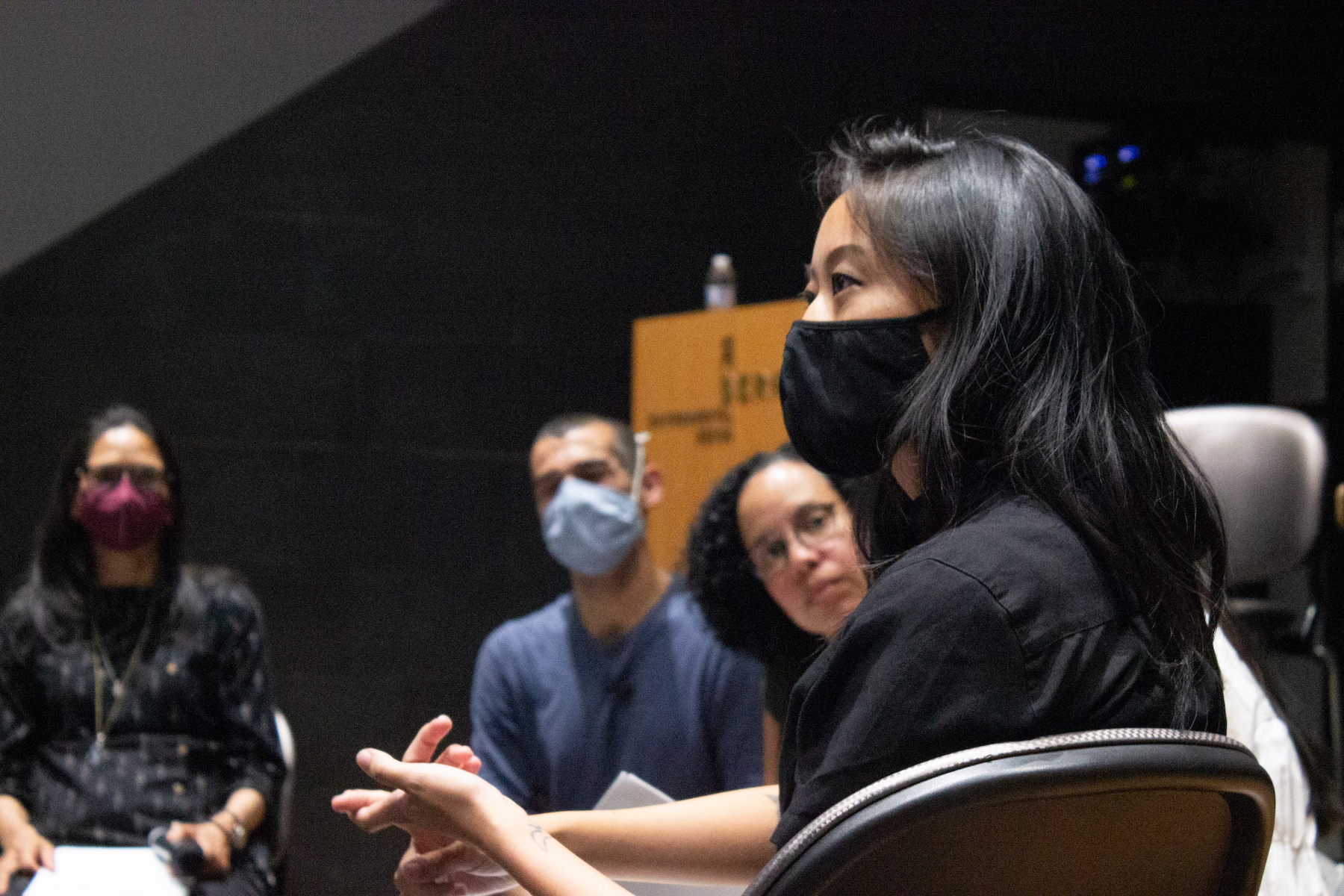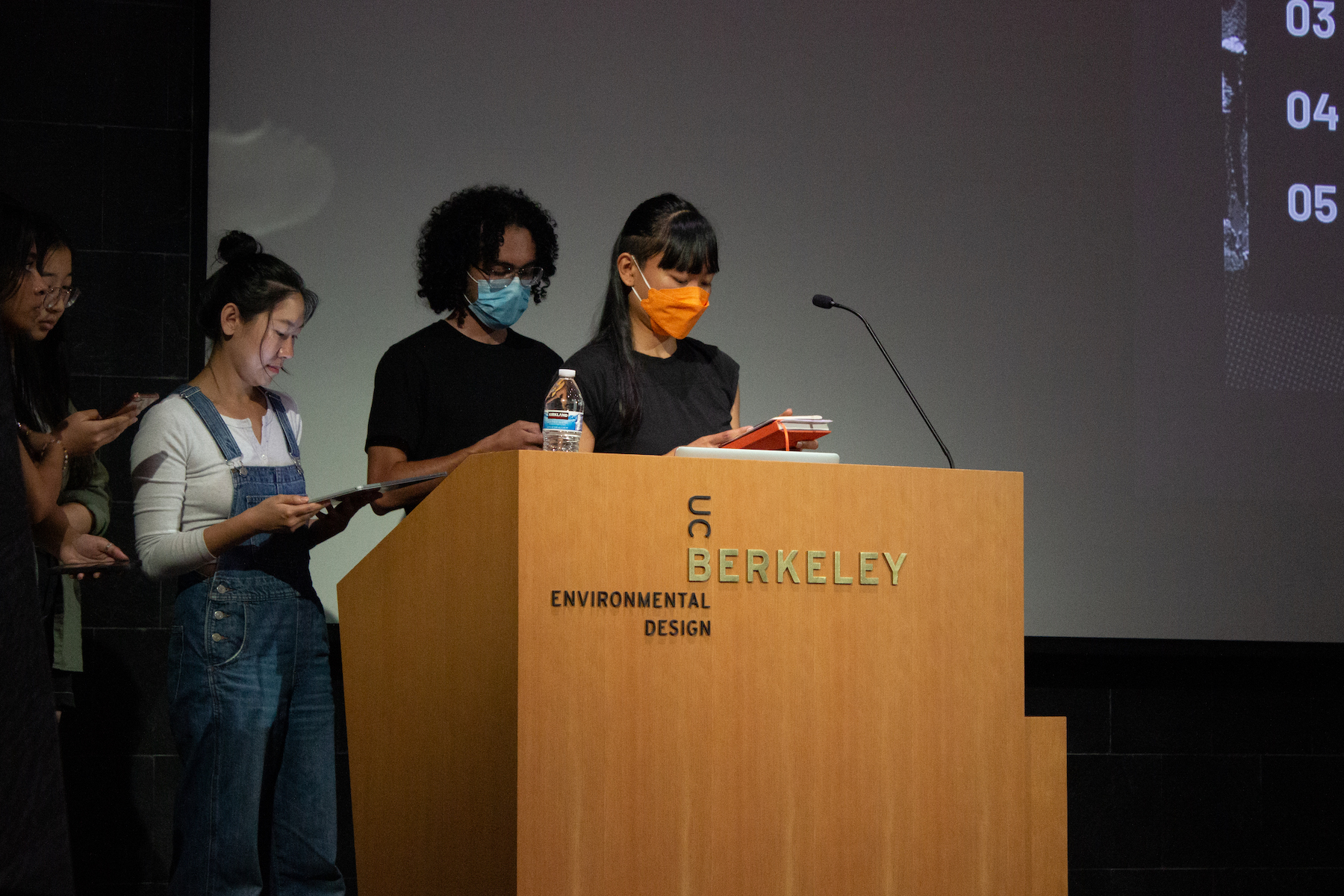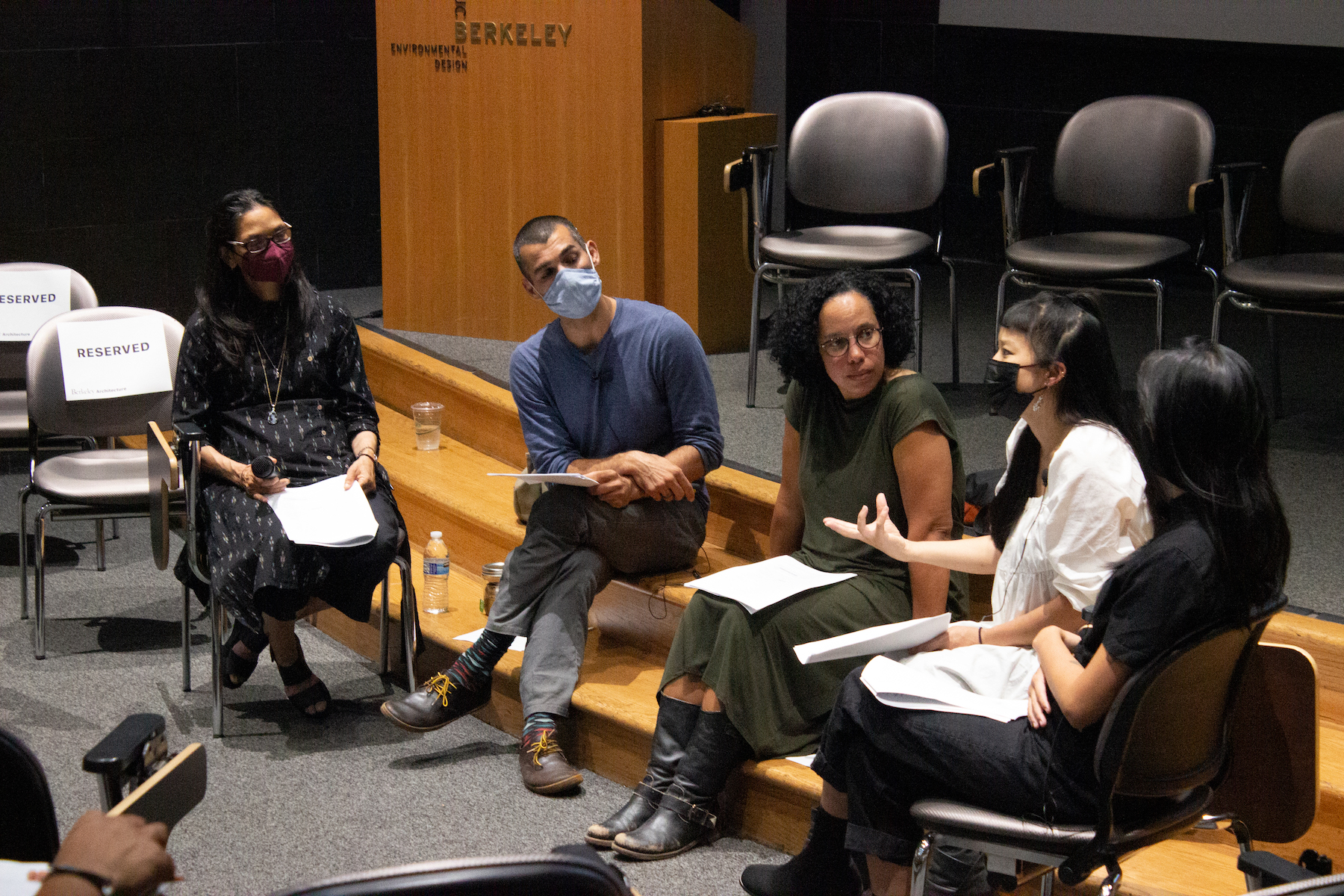Architecture Equity Steering Committee hosts Dark Matter University in event series on social justice in design
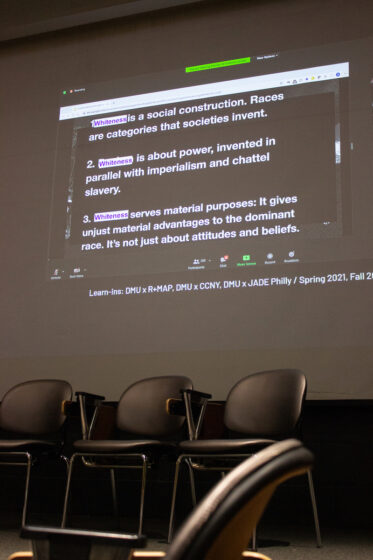
The Architecture Equity Steering Committee (ESC) is immensely grateful to have collaborated over the summer with Dark Matter University (DMU) to organize a series of events for the Fall 2022 semester titled “Challenging Patterns of Supremacy.”
During their lecture, the five members of DMU reflected on the collective’s organizing work through the lenses of Consent, Institutions, Power, Supremacy and Hope.
With the help of a 2020 Graduate Division grant to support JEDI initiatives, the Committee hired five summer student researchers –Tya Abe, Emmanuel Carillo, Chrissie Chen, Wanning Liao and Rida Kamal– to organize an event to meet students’ interests in modes of centering social justice in architectural pedagogy and practice.
A student survey conducted in the 2021-2022 academic year also revealed an interest in opportunities for greater engagement with practitioners in a range of architectural practices.
The student organizers reached out to DMU, a democratic network established and principled in immediate change toward anti-racist models of design education and practice according to their website. Over the course of the summer, the student organizers virtually met with five members of DMU based across the country to discuss how an event could come together that would meet the needs and interests of CED’s student body.
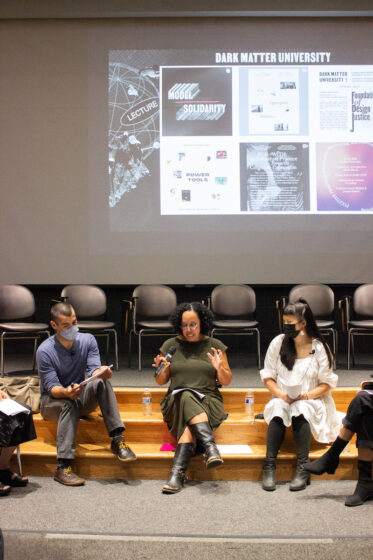
Modeling the strengths of collective organizing, the group –made up of Bz Zhang, Lisa C. Henry, Shalini Agrawal, Shawhin Roudbari and Tonia Sing Chi –created a collaborative discussion environment, welcoming and encouraging student feedback. As a point of contact with the larger organization, the DMU cohort ultimately represented the collective at the lecture and workshop hosted in Bauer-Wurster Hall on September 7th and 9th respectively.
The workshop provided a space for students and some members of CED staff to discuss relationships to institutional racism, mapping productive and disruptive politics of power and care. The workshop also provided a more conversational space for participants to connect with Bz, Shalini, Shawhin and Tonia, as well as with other fellow participants.
Later in the semester, as a follow-up to September’s lecture and workshop, members of DMU’s nation-wide network will be speaking on virtual panels, reflecting on the relationships between their collective work at DMU and their individual architectural practices and areas of research. These panels are being organized in conjunction with Architecture’s graduate colloquium series.
The Architecture ESC would like to extend many warm thanks to the students and DMU organizers. The turn-out and expressions of gratitude for both the lecture and workshop affirmed the relevance of these discussions to architectural education. It is the hope that these events— and more importantly the discussions they facilitated—will continue at CED and inspire students to pursue interests and concerns in social justice in their ongoing and future design and research practices.
